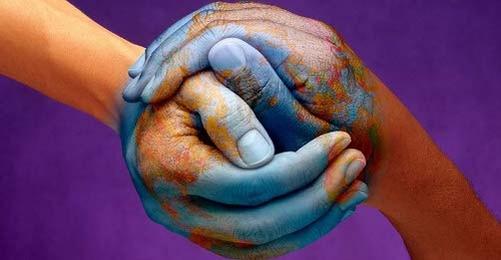The Independent Communication Network BİA celebrated its 10th anniversary last weekend with a panel discussion on the theme of "Media in Feigned Transformation, Silenced Voices" held in Istanbul. bianet, BİA's news site, talked to human rights defenders about the significance of the web site and how it makes a difference.
"Communication for rights defenders"
Levent Korkut from Amnesty International (AI): Lack of communication is one of the obstacles in front of the civil society. bianet first of all has provided this communication ever since it started working. Also the contents are significant. It is not enough to write about certain incidents, it is also important to convey information about what can be done for certain issues.
Another problem is not to get started when a matter is pressing, Korkut continued. bianet is updated with the latest topics and offers ways of possible interventions. We need incentive publications. During the process of constitutional amendments for instance bianet took attention to topics such as labour union rights and children rights, which had been pushed back to a subordinate level. And, of course, bianet provides a 'who is who' for active members of the civil society.
"An alternative source of unbiased information"
Emel Kurma from the Helsinki Citizens Assembly: The ethic and inquisitive journalism of bianet, which also embraces local issues, has become a reference for citizen journalism. A new and alternative concept of news has been established over the past ten years. There should be more news by local journalists made with the concept of bianet and bianet should be more widespread, Kurma said.
Fatma Zengin Dağıdır (Mental Health Human Rights Association): "bianet is like the human rights defenders' voice in the press. For us, bianet is an independent source of unbiased news. I wish bianet was more widespread and would reach even more people".
Reliable source for researchers working on topics related to Turkey
Emma Sinclair-Webb (Human Rights Watch): "As a researcher I see bianet as a reliable source. It fully reflects processes related to human rights, uses plain language instead of polemics and makes expert journalism. Also the English side is important in this aspect. I recommend bianet to researchers and journalist who are following up matters related to Turkey. The media monitoring report on freedom of expression is also very valuable. I know how difficult this is".
Bianet has improved the standards and the quality of journalism throughout the past ten years. It should continue along these lines, it has created very valuable experiences, Sinclair-Webb indicated.
"Reference for rights journalism"
Umut Güner (Kaos GL): "In an interview in 2003, we were able to explain our worries and to illuminate the debate in the media. This was the beginning". bianet is a publication that on important days remembers the ones who would be forgotten otherwise. When Kaos GL thought about how to do rights journalism we tried to get organized with bianet as a reference, Güner recalled. It has a non-hierarchical structure and allows the reader to reach the messenger directly.
Yusuf Alataş (Human Rights for All - FIDH): "For us, bianet is the hand, the foot, the face and the tongue of human rights defenders. It crucially contributes to the visibility of the human rights movement in Turkey and to establishing an awareness of human rights".
"I expect to hear even more from local human rights defenders on the bianet website. I mean a widespread publication network like a kind of agency for human rights".
"Reflexion of demands of social justice"
Hakan Ataman (Human Rights Agenda Association): bianet is a news network that does important work by announcing human rights defenders' activities, making the human rights defenders' voices heard and raising awareness for human rights.
One important example is the fact that rights organizations or labour union confederations introduce bianet to international organizations as "an independent news agency for rights news".
This shows how valuable bianet became for the human rights movement and for human rights defenders, Ataman said.
Ataman pointed out that there is no justice without social justice; a struggle for justice should also include the demands of social justice. Personal and political rights cannot be realized without connecting them to economic, social and cultural rights. Equality needs more than just equality before the law. The vision of human rights, democracy and freedom of expression should include minorities, the most brittle groups, the poor, the disabled, women or the unemployed.
"I would like bianet to become even more widespread and to cover even more topics. bianet is an indicator that resources should be allocated to this kind of work. We should find ways to make bianet available and accessible to a broader audience and to make it even more influential". (TK/VK)















